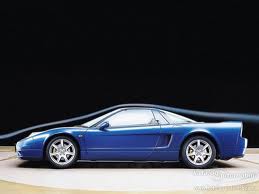


This edition of the Lexus GS 350 is the 6 speed / Auto version and was first brought out in 2008. This was at around the same time as the introduction of the 2008 Ariel Atom V8 500 and the 2008 SSC Ultimate Aero TT.This particular Lexus GS has a 3456cc Naturally Aspirated Petrol powerplant with 6 cylinders in a V formation.
The GS shares its Petrol V6 engine configuration with the likes of the 2014 Radical RXC 3.5 V6 Twin Turbo and the 2015 Radical RXC Turbo 500 3.5 V6. If you're looking for other fast cars which share the GS's Rear Wheel Drive, Saloon combination then how about the 1982 Fiat X1/9 1.5 8V or the 1965 Aston-Martin DB6 1965.
Weighing in at 1721 kgs (3794 lbs) this makes the Lexus GS 350 in the same weight category as the 2022 Chevrolet Camaro SS 6.2 V8 Auto or the give or take 50kg.
![Porsche Cayenne Coupe E-Hybrid 3.0 V6 Turbo - [2023] image Porsche Cayenne Coupe E-Hybrid 3.0 V6 Turbo - [2023] image](/editionimages/2375.jpg)
The Lexus GS shares the same bhp with the 2023 Porsche Cayenne Coupe E-Hybrid 3.0 V6 Turbo (300 bhp)
In terms of power the 3456cc 24V V6 engine produces 303 bhp (225 kW) @ 6200 rpm similar to the 2023 Porsche Cayenne Coupe E-Hybrid 3.0 V6 Turbo (300 bhp) or the 2023 Porsche Cayenne E-Hybrid 3.0 V6 Turbo (300 bhp).
The Naturally Aspirated V6 throws out 274 lb-ft (371.4 Nm) @ 3600 rpm placing it with cars of similar torque performance figures such as the 2023 Toyota Corolla GR Morizo Edition 1.6 Turbo (295 lb-ft) or the 2023 Toyota Corolla GR Circuit Edition 1.6 Turbo (273 lb-ft).
If one combines the weight with power or torque performance for the Lexus GS you can get a better idea of it's real world performance.
The Lexus GS has a Power to weight ratio of 176.0 bhp per ton and 159.2 lb-ft per ton. Bhp Per Ton figures of the 2008 GS competing with the 2012 Lexus LS 460 4.6 V8 (201.0 bhp per ton) or the 1994 Subaru Impreza WRX STI V1 - Classic JDM (200.8 bhp per ton).
If you agree with the late great Carroll Shelby then arguably an even better indicator of potential performance, Torque. Use weight as well and you end up with - Torque per ton, with the Lexus GS generating around 159.2 lb-ft per ton. If you're curious as to what other cars have as much torque to weight then look no further than the 1991 Porsche 944 Turbo Cabriolet (184.2 lb-ft per ton) or the 2011 Ford Focus 2.0 ST-3 (184.2 lb-ft per ton).
With a 0-60mph time of 5.70 secs or a 0-100km/h (0-62mph) of 5.9 secs, this made the Lexus GS 350 as fast as the 2022 Hyundai i30 N Performance 2.0 Turbo (5.70 secs) the 2019 Ford Focus ST 2.3 EcoBoost Wagon (5.70 secs) the 2016 Volkswagen-VW Golf GTi 2.0 Turbo Clubsport (5.70 secs) the or the 2014 Seat Leon Cupra 265 DSG (5.70 secs). This Lexus GS 350 is also faster than the 2021 KIA K5 GT 2.5 Turbo (5.80 secs) the 2020 Toyota Camry TRD 3.5 V6 (5.80 secs) the 2017 Seat Leon ST Cupra 300 DSG (5.80 secs) the and the 2017 Renault Megane RS 1.8 Turbo 280 (5.80 secs).
When talking about the performance of the Lexus GS on the drag strip it can reach a quarter mile in an estimated 14.73 secs @ 92.9 mph. Similar performance down the quarter mile can be found with the the 2012 BMW X6 M50d E71 (14.66 secs), the 2013 BMW 3 Series 335i (14.66 secs), and the 2018 BMW X6 M50d 3.0 Turbo (14.66 secs).
Modern performance cars are often artificially restricted to 155mph. The 2008 version of the Lexus GS 350 has a maximum speed of 143mph.
If maxing out your car on the AutoBahn is your thing and you're wondering what's faster than the 2008 Lexus GS 350 then how about the 2023 Porsche Cayenne 3.0 V6 Turbo (154 mph), the 2023 Porsche Cayenne Coupe 3.0 V6 Turbo (154 mph), or the 2019 Peugeot 508 PureTech 225 GT S and S (154 mph).










Honda Civic Type R 2.0i 16v Turbo - FK8
Engine: Turbo Petrol | 1996cc 16v St4
Top Speed: 169 mph
0-60mph: 5.50 seconds

Toyota Avalon TRD 3.5 V6
Engine: Naturally Aspirated Petrol | 3456cc 24v V6
Top Speed: 217.2 kph
0-100kph: 4.0 seconds



















